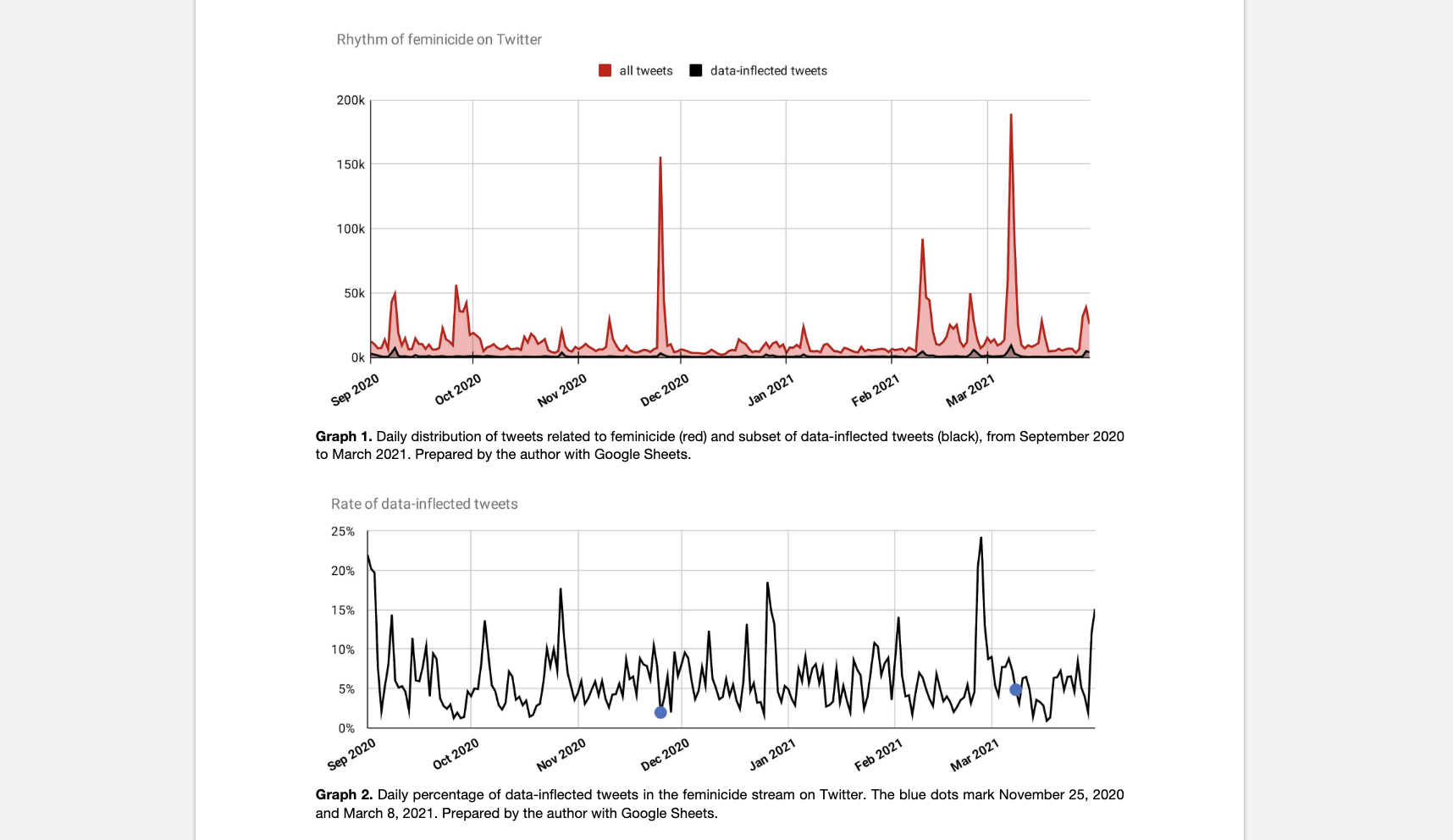Tag: publications
-

Data-Inflected Visions of Feminicide (Suárez Val, 2025)
This paper advances the notion of “data-inflected visions” to show how various visual representations may come come to be imagined as data, and how doing so opens up different meanings for the political and affective work of data. The visuality of social issues is produced through competing hegemonic and alternative visions, and conventional visualization is…
-
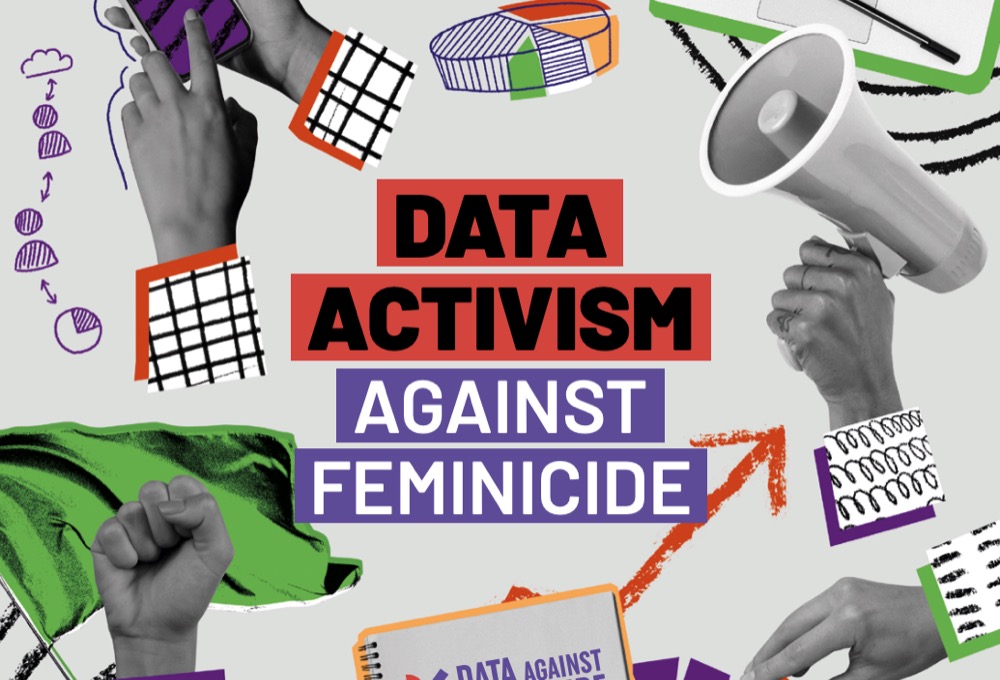
Data Activism Against Feminicide (Cruxên & Jungs de Almeida, 2024)
What role does data play in addressing gender-based violence? This report summarizes the results of five years of collective work as part of the Data Against Feminicide project. Data Against Feminicide is a South-North participatory action research and design project that supports the work of activists and civil society organizations that produce data on gender-based…
-
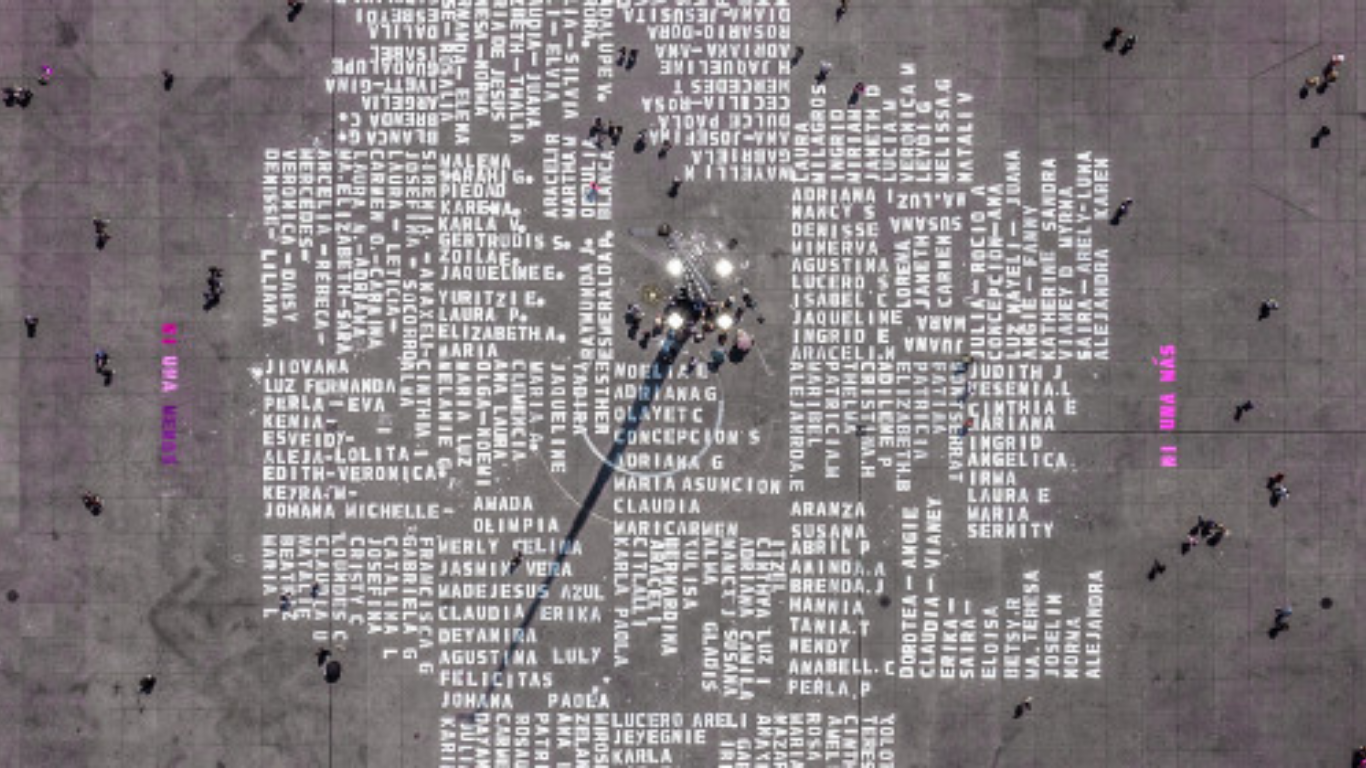
Counting Feminicide: Data Feminism in Action (D’Ignazio, 2024)
What isn’t counted doesn’t count. And dominant institutions systematically fail to account for feminicide, the gender-based murder of women and girls, including cisgender and transgender women. In the face of this failure, Counting Feminicide foregrounds the work of data activists across the Americas who are documenting these kinds of murders and challenging the reigning logic…
-
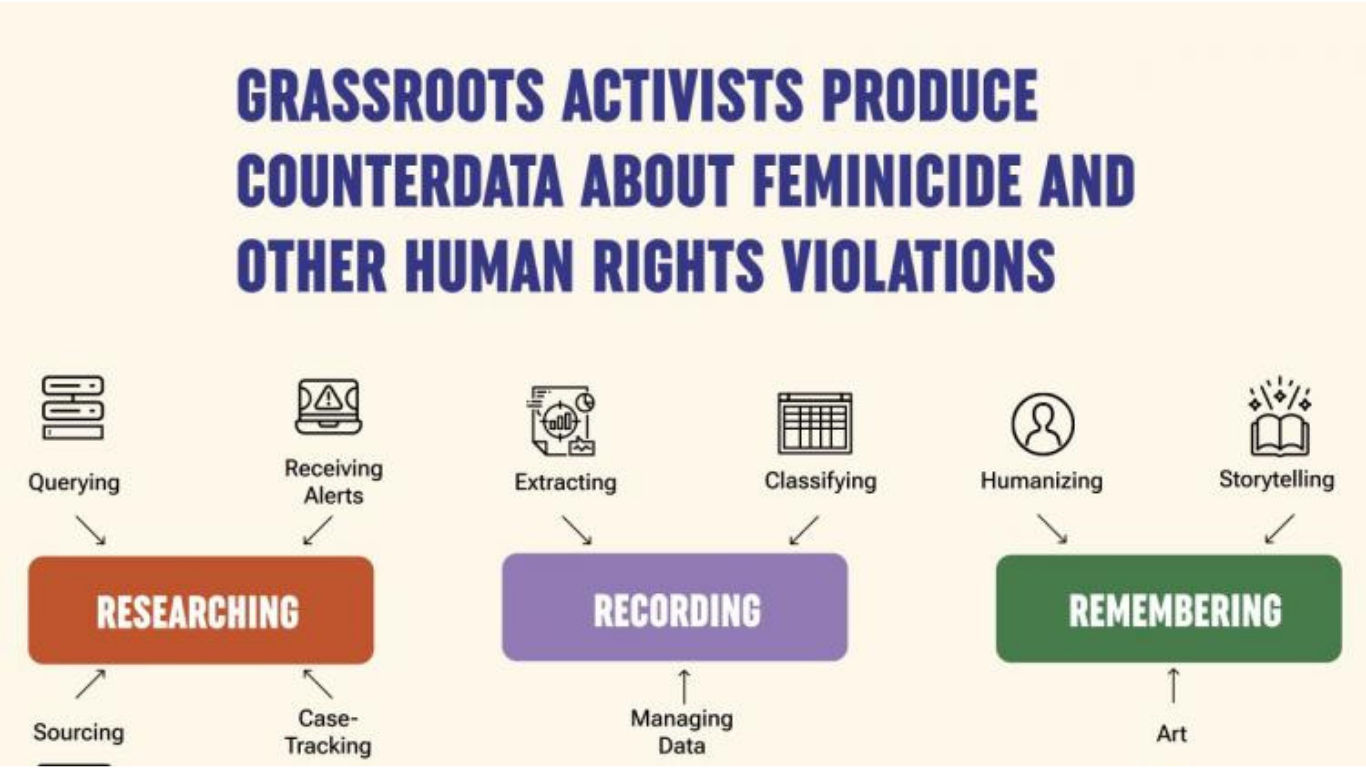
Feminicide and counterdata production: Activist efforts to monitor and challenge gender-related violence (D’Ignazio et al, 2022)
Gender-based violence against women and its lethal consequence, femicide, are a serious problem worldwide. Official government data on gender-based violence and femicide are often absent, incomplete, infrequently updated, and contested. We draw on data feminism to situate femicide data as missing data. Drawing on qualitative interviews, this study analyzes the informatics work of ten activist…
-
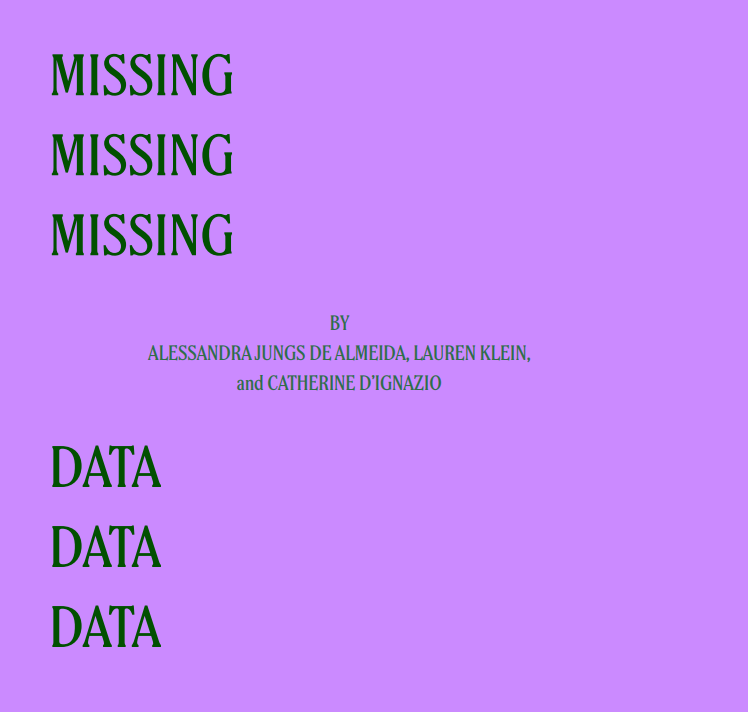
MISSING DATA (Jungs de Almeida et al, 2024)
This article explores the concept of “missing data” from a political and social perspective, rather than merely a technical one. While traditional definitions of missing data typically refer to information that is literally missing or incomplete, the approach taken here, aligned with artist and educator Mimi Ọnụọha, considers missing data as that which does not…
-
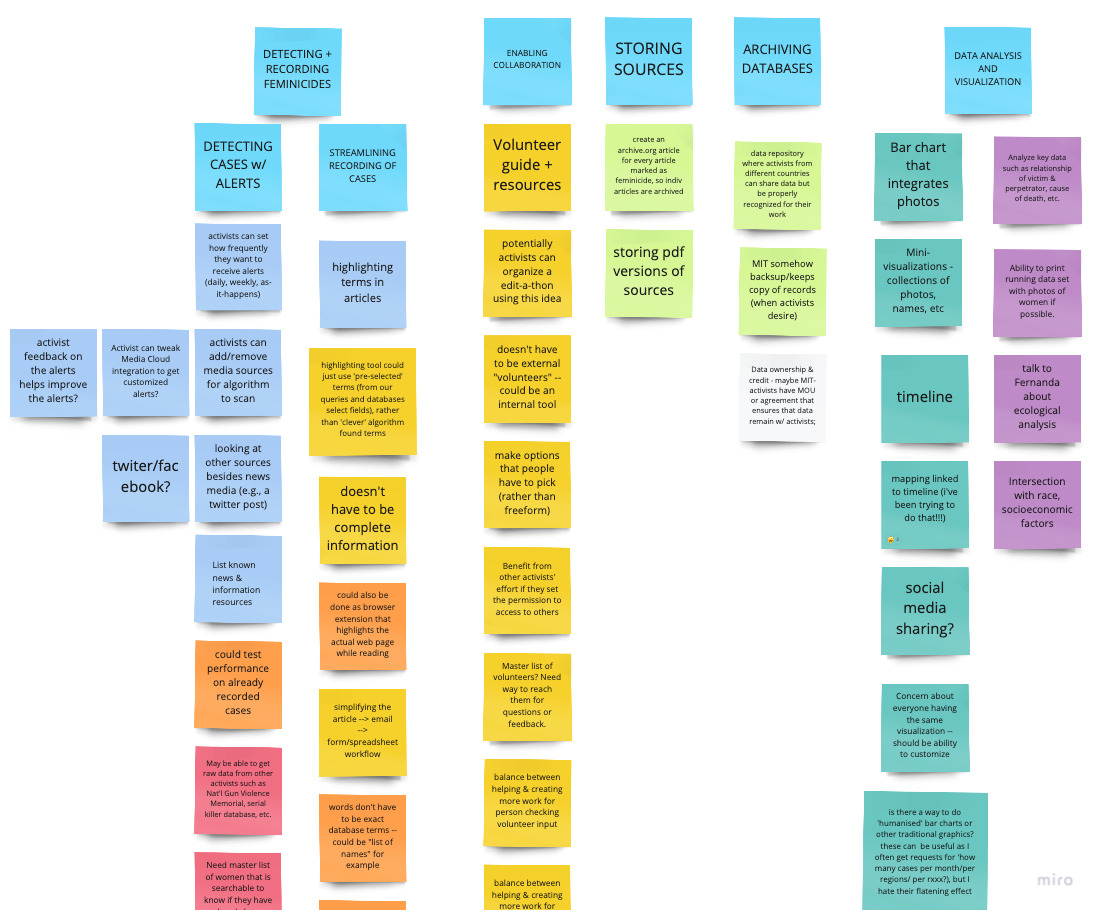
Data Against Feminicide: The Process and Impact of Codesigning Digital Research Tools (Suárez Val et al, 2024)
Data Against Feminicide is an action research collaboration that aims to foster an international community of practice around femicide data. In this chapter, we introduce two tools we have co-designed and tested with activists to facilitate their work and ease the burdens on their workflow. Data Against Feminicide Email Alerts is an artificial intelligence-based system that detects…
-

Geographies of missing data: Spatializing counterdata production against feminicide (D’Ignazio et al, 2024)
Feminicide is the murder of cisgender and transgender women and girls for gender-related reasons. It reflects systems of patriarchal and racialized oppression and reveals how territories and socioeconomic landscapes shape everyday gender-based violence. In recent decades, many community data production initiatives have emerged with the goal of monitoring this extreme yet often invisible phenomenon. We…
-
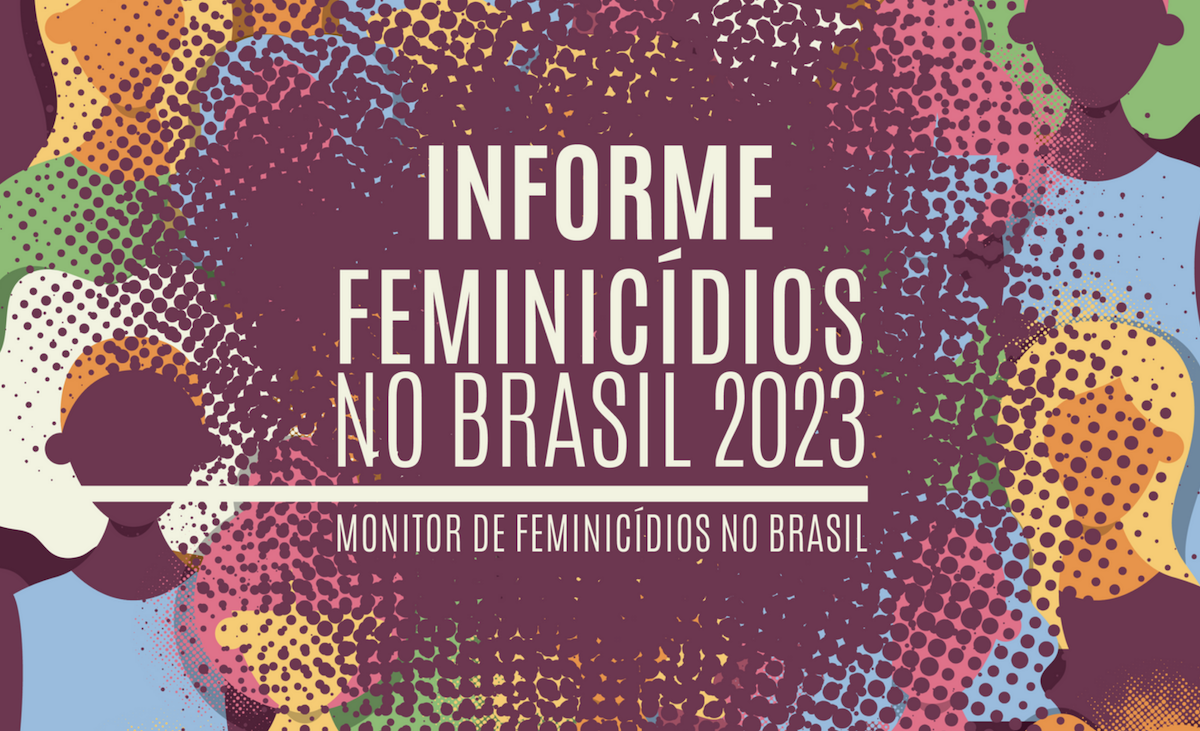
Missing data and counterdata (Cruxên et al, 2024)
Cruxên, I., Jungs de Almeida, A., Klein, L. F., & D’Ignazio, C. (2024). Dados Ausentes e Contradados. Em S. Mariano (Ed.), Informe Feminicídios no Brasil 2023: Monitor de Feminicídios no Brasil. Márcio Ferreira de Souza. https://dspace.mit.edu/handle/1721.1/157846?show=full O Monitor de Feminicídios no Brasil (MFB) é uma iniciativa do Laboratório de Estudos de Feminicídios no Brasil, formado…
-
Challenging (in)security: Missing Data and Counterdata Production on Feminicides in the Americas (Jungs de Almeida et al, forthcoming)
Jungs de Almeida, A., Cruxên, I., Radhakrishnan, R., & D’Ignazio, C. (forthcoming). Challenging (in)security: Missing Data and Counterdata Production on Feminicides in the Americas. En P. Anctil (Ed.), Feminist Security Studies in the Americas: Pushing the Fronteras. Palgrave Macmillan. Enlace externo

